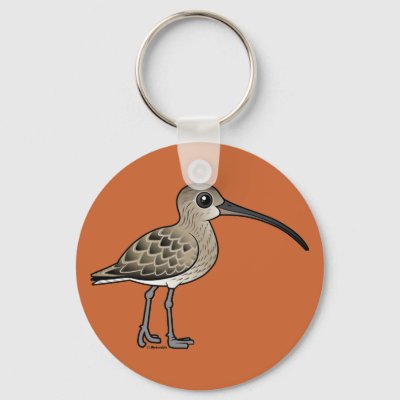The Eurasian Curlew is a large species of wader with a very long bill. Eurasian Curlews range from central and southern Europe and Asia to parts of Africa. They are migratory.
Eurasian Curlews feed primarily on invertebrates. They find prey by touch, using their unique long, curved bills. Males and females have similar plumage, but females are much larger in size.
Eurasian Curlews are known simply as Curlew through much of their range. They breed in meadows and other flat scrubland-type habitat. They are named for their loud call, which sounds like they are yelling "curloo-oo-oo."
Added to Birdorable
Hatched December 19, 2011
Measurements
Weight:
1.3 to 2.2 pounds
(595.3 to 992.2 grams)



























